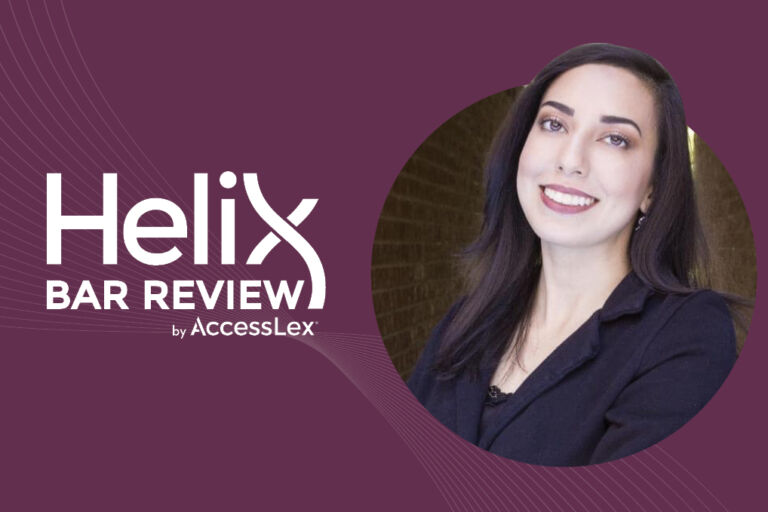The job market is tight and law firms are looking for graduates with specialized training. Enter the LL.M., a graduate degree that was once exclusive to tax lawyers and a few select others. The degree, however, has grown in popularity in recent years, and law schools are responding with more specialized offerings.
“We’re probably seeing an increase in LL.M. programs to what’s going on in the marketplace due to the job market,” said Christopher Pietruszkiewicz, dean and professor of law at Stetson University School of Law.
There are currently more than 265 LL.M. programs in 42 practice areas for U.S. students. In addition, foreign students can earn an LL.M. in U.S. Studies, and a handful of law schools open those programs to U.S. students as well.
The total number of programs has grown rapidly during the past 10 years — there were only 110 programs in 28 practice areas in 2000.
Stetson University launched an online LL.M. degree in advocacy this fall, one of several new programs nationwide. The program follows two national trends with LL.M. programs — it’s in a unique subject area and it delivers the education in an innovative way.
“The timing is right because we started a distance learning LL.M. program years ago in Elder Law, which was successful,” Pietruszkiewicz said. “[The Advocacy LL.M. is] a natural outgrowth from what we’ve been doing. While you’ll see an increase [in distance learning], there is still the interaction in law school that serves an important goal.”
Online degrees are growing in popularity thanks to convenience and improved technology. There are now 31 programs offered by 22 law schools, and dozens of other schools are working on creating such programs.
Stetson University’s LL.M. is offered part-time during two years through a distance-learning platform, and there is also limited in-person participation. The program is designed to meet the needs of busy legal practitioners who need this training for their current practice, or want it to help advance their career.
Rod Sullivan, associate professor at Florida Coastal School of Law who is behind that schools’ latest LL.M. offering, said most current law students and recent graduates realize that in today’s legal market they need a specialty — something that sets them apart from other lawyers.
“We are trying to teach young lawyers about an industry, and make them experts so that they will have a marketable skill,” he said.
The practice of law is becoming more specialized and complex. That, in turn, is spurring law schools to create new and unique subject areas, a trend found throughout all higher education.
Sullivan is running the first LL.M. program in Transportation and Logistics law.
Sullivan has practiced law in the field of Transportation and Logistics for more than 25 years. So when Florida Coastal Law’s administration approached him about creating a specific LL.M. program in this area of law, he agreed. The idea, though, first came via the Jacksonville Port Authority, which suggested it because the University of North Florida already had a Transportation and Logistics Bachelors program, and Florida State College Jacksonville had a Logistics program. The Port Authority felt Florida Coastal was uniquely positioned to have such a program to train lawyers and non-lawyers in transportation law.
The goal of the program is to give students cutting-edge training in the practical and regulatory aspects of the operations of ocean carriers, rail carriers, truck and air carriers, supply-chain managers, the governmental agencies which regulate them and the labor unions which serve them.
“The area of law has changed a lot,” Sullivan said. “A mega trend is that we manufacture fewer and fewer in the United States.”
The program is completely online and flexible. All 25-minute lectures are recorded. Part-time students can complete it in two years.
“Over the years I’ve met many students who want to practice ‘international law’ without really knowing what it is,” Sullivan said. “Transportation and logistics is an international practice because cargo, passengers, bills of lading and international banking are all involved in international trade.”
Thomas M. Cooley Law School also launched a unique LL.M. this fall. It’s LL.M. in Homeland and National Security Law is only the third graduate program in National Security, joining programs offered by George Washington University Law School and Georgetown University Law Center, both in Washington, D.C.
Michael McDaniel, who currently teaches Constitutional Law as well as Homeland Security electives at Cooley, developed the school’s Homeland and National Security curriculum. He previously served as U.S. Deputy Assistant Secretary for Homeland Defense Strategy, Prevention and Mission Assurance and concurrently served as a Brigadier General in the Michigan National Guard.
“We needed [a program] that focused on Homeland Security first and foremost and recognize the implications,” McDaniel said. “I think that there is no shortage of legal issues in homeland and national security that are to be discussed.”
Such recent cases include Edward Snowden, the former NSA contractor who leaked information to the American public, and the Boston bombing.
Instances like these, McDaniel said, are happening every day.
“It is just the currency of it that is attractive to the law student as well as the lawyer,” he said.
The LL.M. in Homeland and National Security is offered on campus and online.
While most new programs are offered online, other schools are getting creative in making the degrees more flexible. Boston University recently announced accelerated J.D./LL.M. programs in tax and banking law. Students can now complete both degrees in six semesters, as opposed to the normal eight semesters.
“The six-semester option should be an attractive path for students who know early on that they want to specialize in these fields,” said John Riccardi, assistant dean for graduate and international programs at Boston University.
The accelerated programs are designed for students already enrolled in Boston Univetrsity’s J.D. program. They take required LL.M. courses in their second and third years. The school is also offering an accelerated seven-semester program, where students take qualifying courses during the second and third years of the J.D. program, and then graduate with sufficient standing to complete the LL.M. in Banking & Financial Law or Taxation in one additional semester.
“One thing about our education here in the LL.M. Program is that we stress practical transactional skills,” said Martin Lacado, associate director of the Graduate Program in Banking and Financial Law. “If we can introduce those skills sets to young lawyers then I think we’re putting them on the right path.”





